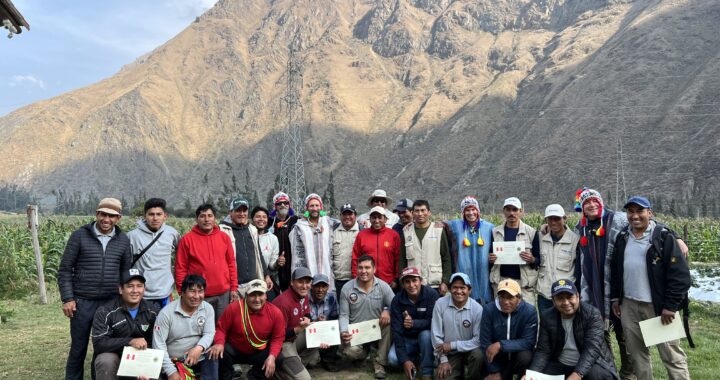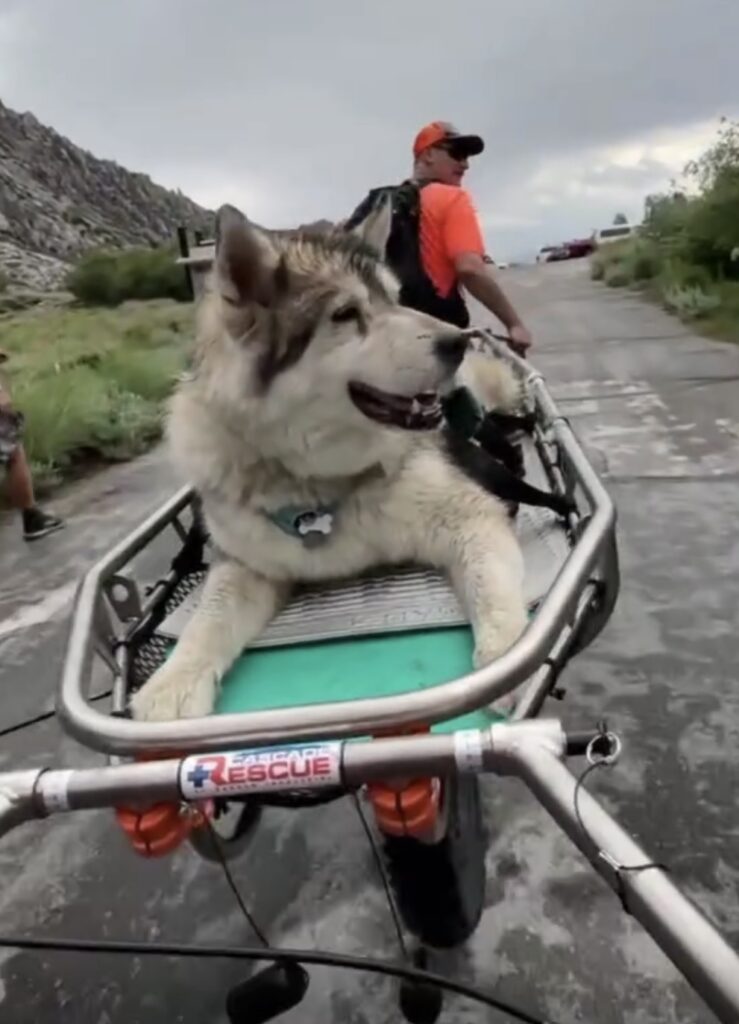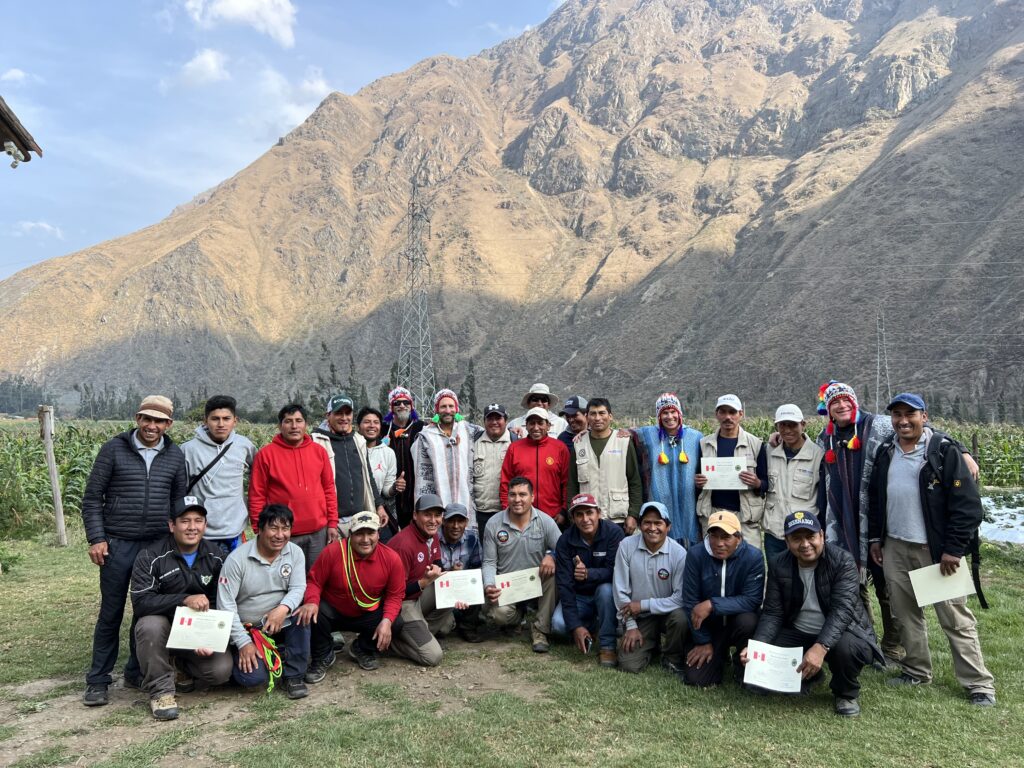“Where the Rope Ends” Airing on PBS
The documentary that was featured in the last edition of Meridian is now going to be shown on PBS stations. “Where the Rope Ends” tells the story of Nichole Doane, a Seattle nurse who was rescued by SAR after a canyoneering accident in 2017. Doane was seriously injured and the film chronicles her experience being rescued and recovering from her injuries. The film had to be modified slightly to meet PBS’s requirements, but was accepted and will have the opportunity to show on up to 356 PBS stations for the next three years. Keep an eye out for it in your area!
Saving the Animals, too!
SAR is generally recognized for finding and rescuing humans, but sometimes animals need it, too. This summer saw a some notable animal rescues by SAR teams. In late June, hikers took their dog, Loki, on the Kearsarge Pass trail in Inyo County, California. Loki eventually became unable to continue, and some fellow hikers assisted in making a stretcher to help carry the 90-lb. pet. When the good samaritans were unable to continue, they called Inyo’s SAR team. Inyo had team members available and they responded with a wheeled litter to bring Loki out the last two miles. Inyo used social media to remind dog owners that pets can get hurt and tired, too, and being prepared with gear to assist your four-legged hiker pal can be important. Marin County SAR got called in July to assist with a large Arabian horse who had slipped 30 feet off a trail and was stuck in a ravine in the Point Reyes National Seashore. Marin SAR’s Animal Technical Rescue Group responded with specialized equipment and trained personnel and took nearly seven hours to successfully extract the horse up to the trail. Once on trail, the horse was able to stand and walk back to the trailhead. In August, a couple’s dog got swept away in the Cheakamus River in Squamish, British Columbia. They frantically searched for the dog, Maverick, themselves, but eventually called Squamish Search and Rescue to assist. Squamish SAR responded with a team of water and rope technicians to extract the dog from a narrow cave in which it had found shelter along the river. It was a dangerous and technical rescue, which is why Squamish said they accepted the call. They did not want unqualified people to attempt the rescue and get into further danger.
Teaching Rope Rescue Skills in the Sacred Valley of Peru
Members of a few MRA teams participated in an exchange with a team in Peru’s Sacred Valley in August and September. Members from the Bay Area Mountain Rescue Unit, Marin County Search and Rescue, and Hawaii’s Search Tech Advisory Team worked to develop a curriculum and solicit technical gear donations for a team of wildland firefighters and search and rescue volunteers who work on the Inca Trail and in Machu Picchu. Eugenio Ricra had reached out for assistance in training his team, and a multi-agency team was put together. Santa Barbara SAR had also worked with groups in this area more than a decade ago, and they provided insights and advice to the new team about how to best assist. Donations from CMC Rescue, Sterling Rope, Cascade and 360 Rescue included a litter, wheel, ropes, helmets as well as assorted hardware and other items. The American team went down in two waves with the first group teaching basic knots, on-rope skills and introducing rope systems, while the second group taught trail rescue skills and more advanced rope systems, including steep-angle rescue with a twin-tension rope system. The Peruvian team graciously arranged tours of the Inca Trail and Machu Picchu for visiting instructors. It was a great cultural exchange that both groups hope to continue.

Survivability in Extended Searches
When people are missing for several days, it can be easy to lose optimism, but three searches recently showed survivability is still possible, especially if a water source is available. They also highlight why search is an emergency. Placer County had an extended search in July for Warren Elliott, 70, who was missing for five days in the remote mountains west of Lake Tahoe before he was found near Hell Hole Reservoir. He survived eating berries and drinking from the Rubicon River. In Santa Cruz County, Lukas McClish was found by first responders after he spent 10 days in Big Basin Redwoods State Park. McClish lost 30 lbs and survived by drinking water from running streams and waterfalls. And in Nevada County, a 24-year-old woman who had been missing for 12 days, and was the subject of an extensive search, was located by sheriff’s deputies searching for her in remote mountainous terrain near the Yuba River. Esmeralda Marie Pineda was severely dehydrated and emaciated and was airlifted to receive immediate medical attention.
TEXTB




